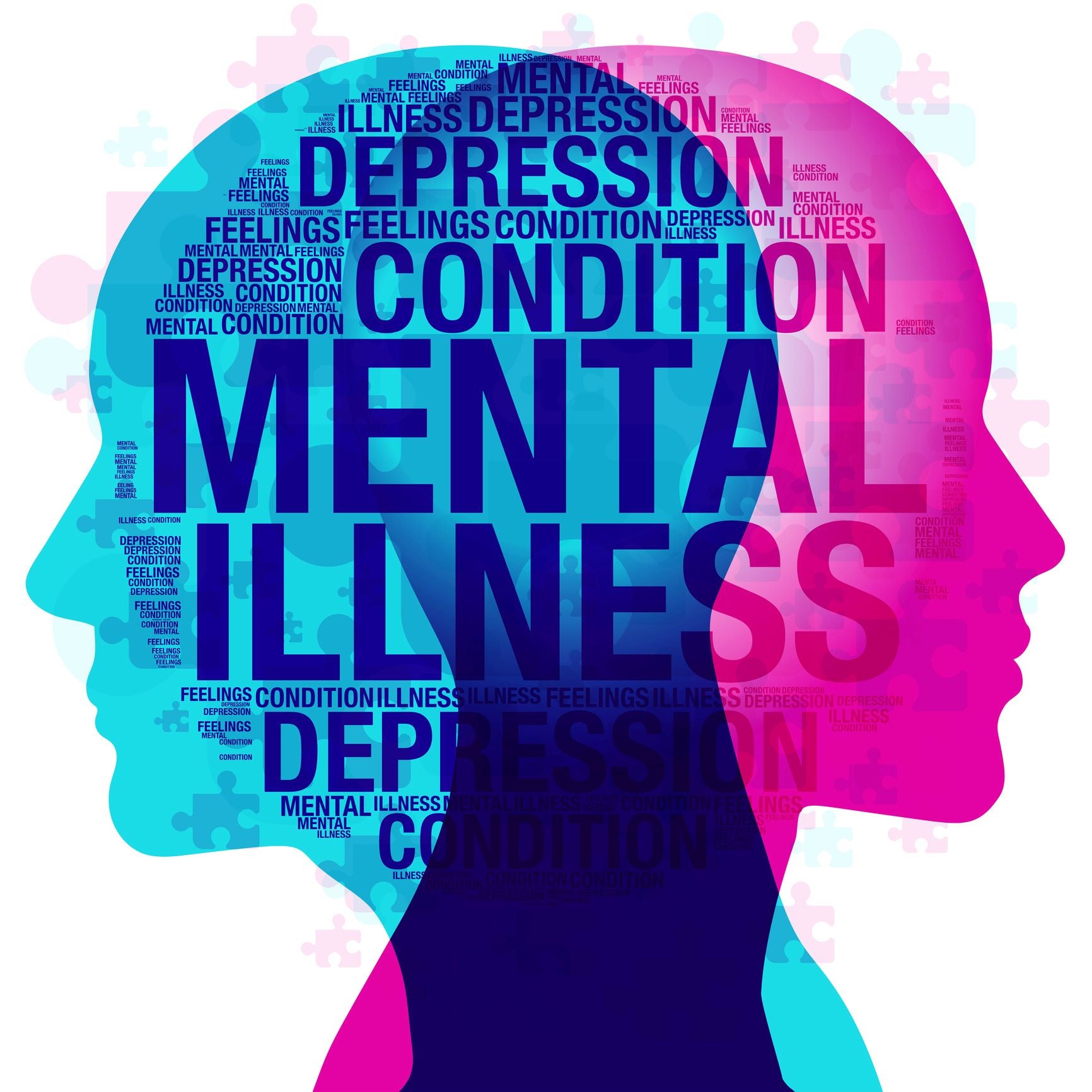Residential Mental Health Services Designed for Complete Care
Residential Mental Health Services Designed for Complete Care
Blog Article
Comprehensive Inpatient Mental Wellness Solutions for Effective Therapy
Inpatient psychological health and wellness solutions represent an important element of the health care system, providing a organized and extensive atmosphere for individuals experiencing severe mental distress. Discovering the subtleties of this continuum exposes considerable ramifications for both specific recovery and broader psychological health results.
Comprehending Inpatient Mental Health And Wellness Solutions
Inpatient psychological health services provide important support for individuals experiencing extreme mental distress that can not be taken care of successfully in an outpatient setting. These services are designed to offer an intensive level of care in an organized setting, typically within a healthcare facility or specialized facility. People confessed to inpatient programs generally show acute signs, such as self-destructive ideation, severe depression, or psychosis, demanding continuous surveillance and intervention.
The admission process typically includes a detailed analysis by psychological wellness professionals, who assess the individual's mindset, history, and prompt requirements. As soon as confessed, individuals take part in a variety of restorative techniques tailored to their specific requirements, including medication administration, specific therapy, and group sessions. This alternative technique intends to stabilize the individual's condition, promote safety and security, and foster coping skills.
Inpatient psychological wellness services not just address prompt health concerns but likewise act as a bridge to recurring care. By supplying a regulated atmosphere, these solutions assist in the advancement of therapy strategies that can be proceeded in outpatient settings, therefore ensuring a continuum of treatment and improving lasting results for people with complex mental health requirements.
Trick Components of Effective Therapy
Effective therapy in inpatient mental health solutions makes up several key parts that foster healing and stablizing. First and foremost, an extensive analysis is necessary to recognize the individual's specific requirements and obstacles. This assessment informs the growth of a tailored therapy plan, which serves as a roadmap for intervention.
An additional essential component is the multidisciplinary team technique. Cooperation amongst psychoanalysts, psycho therapists, registered nurses, and social workers makes sure that different point of views add to the person's treatment, boosting the effectiveness of therapy. Evidence-based healing techniques, such as cognitive-behavioral therapy (CBT) and dialectical behavior modification (DBT), are additionally indispensable, providing structured strategies that deal with maladaptive thought patterns and behavioral issues.

Finally, an emphasis on aftercare planning is crucial to make sure a smooth shift to outpatient solutions, lessening the risk of regression and advertising long-term health. These cumulative elements produce an effective therapy structure within inpatient psychological wellness services.
Advantages of Comprehensive Care

Thorough care in inpatient psychological health and wellness services supplies countless advantages that dramatically boost patient outcomes. One of the main advantages is the all natural method to therapy, attending to not only the mental symptoms however likewise the physical, social, and psychological demands of individuals. This comprehensive assessment permits tailored treatments that promote overall health.
An additional advantage is the assimilation of multidisciplinary groups, which cultivates partnership amongst medical care professionals. This joint environment makes sure that patients obtain collaborated treatment, minimizing the danger of fragmented therapy and improving interaction among caretakers. Comprehensive treatment promotes connection of solutions, permitting for seamless changes from inpatient to outpatient setups, which is crucial for long-term recovery.

Lastly, the structured environment of thorough inpatient treatment provides a safe space for patients to participate in therapeutic tasks, helping them develop dealing strategies and strength. Collectively, these advantages contribute to more efficient therapy and boosted lifestyle for people experiencing psychological health and wellness situations.
Evidence-Based Restorative Techniques
In the world of mental health therapy, evidence-based healing approaches play a critical function in making certain that people get reliable and scientifically supported interventions. These techniques incorporate the very best offered study with scientific proficiency and client values, promoting a tailored therapy experience that deals with private requirements.
Cognitive webpage Behavior Treatment (CBT) is one of one of the most extensively recognized evidence-based techniques, concentrating on recognizing and changing unfavorable idea patterns and actions. This structured method has actually shown efficacy in treating conditions such as ptsd, clinical depression, and anxiety. Likewise, Dialectical Habits Treatment (DBT) is especially reliable for people with borderline individuality problem, stressing the growth of psychological law and social performance abilities.
Furthermore, medication management is typically an indispensable part of evidence-based treatment, as psychotropic medications can reduce symptoms and improve overall performance. Joint treatment designs, which involve multidisciplinary groups, further boost the effectiveness of inpatient services by making sure detailed assessments and continuous surveillance.
Inevitably, the combination of evidence-based restorative approaches not just advertises positive medical end results however likewise empowers clients, cultivating a feeling of agency and resilience in their psychological health trips.
Transitioning to Outpatient Support
The transition from inpatient psychological health solutions to outpatient support notes an important phase in a patient's recuperation journey. This duration requires mindful planning and control to guarantee connection of treatment and to mitigate the dangers of relapse or situation. Effective discharge planning must begin early in the inpatient stay, involving a multidisciplinary team that consists of psychiatrists, psychologists, registered nurses, and social workers.
Key components of a successful shift consist of the advancement of a thorough aftercare plan customized to the individual's details requirements. This strategy ought to lay out follow-up appointments, medicine monitoring, and therapeutic interventions, in addition to recognize community resources and support system that can facilitate continuous recuperation.
Moreover, client and household education and learning is vital during this phase. Comprehending the indicators of prospective problems and the value of sticking to therapy can encourage patients and their support group.
Routine follow-up and reassessment of the outpatient strategy are necessary to address evolving difficulties. By promoting a collective connection in between outpatient and inpatient service providers, the possibility of sustained healing increases, eventually enhancing the client's lifestyle and decreasing the risk of readmission.

Final Thought
In recap, comprehensive inpatient mental wellness see this page solutions offer a necessary structure for addressing serious mental distress via a multidisciplinary approach. By integrating evidence-based treatments, cultivating an organized environment, and promoting household participation, these solutions boost therapy effectiveness. The emphasis on stability and the development of coping skills not only help in instant recuperation yet additionally facilitates a smoother transition to outpatient care. Ultimately, such extensive care is crucial for lasting psychological wellness and well-being.
The admission process usually involves a comprehensive assessment by mental health professionals, who evaluate the individual's mental state, background, and instant requirements.Efficient treatment see this website in inpatient mental wellness solutions makes up a number of crucial elements that promote healing and stabilization.Comprehensive care in inpatient mental wellness services offers numerous advantages that substantially enhance person end results.The shift from inpatient psychological health and wellness services to outpatient assistance marks a critical stage in a client's recuperation journey.In recap, detailed inpatient mental health and wellness services use an important structure for attending to severe mental distress via a multidisciplinary technique.
Report this page